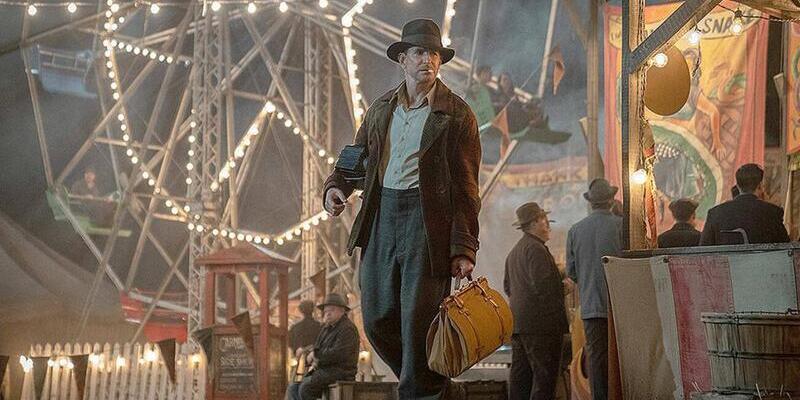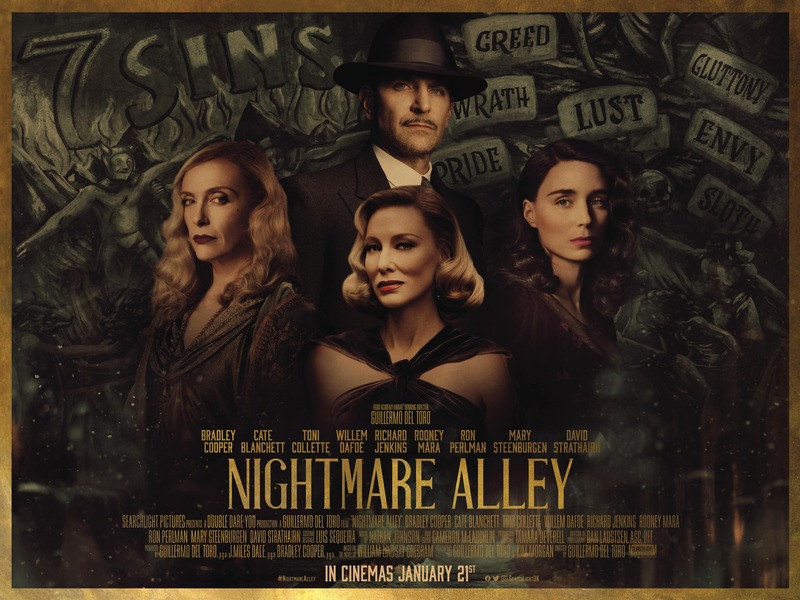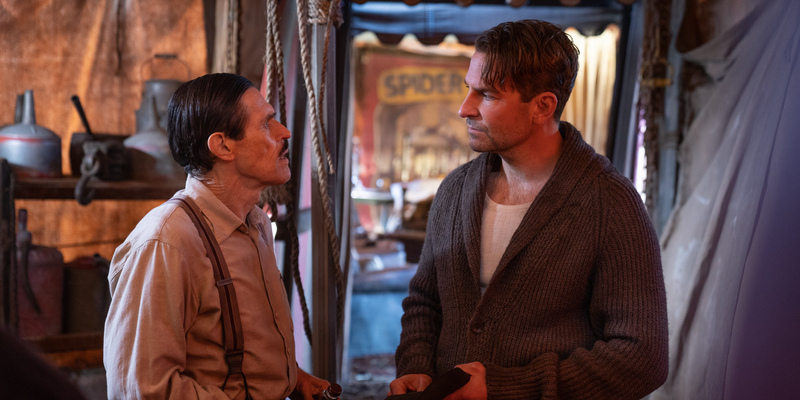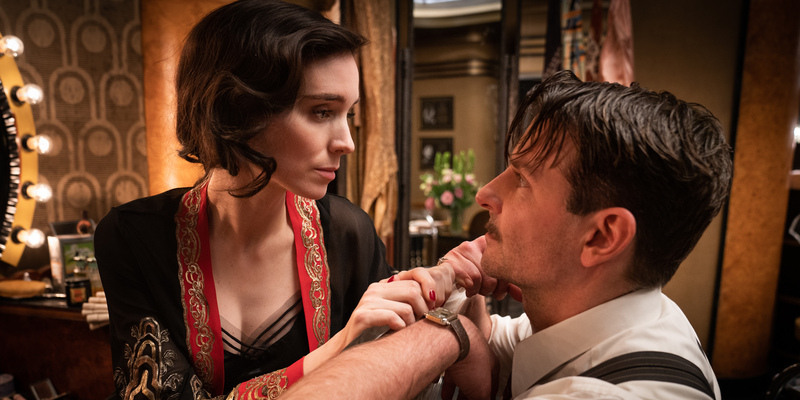
Review by
Eric Hillis
Directed by: Guillermo del Toro
Starring: Bradley Cooper, Cate Blanchett, Rooney Mara, Willem
Dafoe, Richard Jenkins, Toni Collette, David Strathairn

Arguably the most defining component of 1940s Film Noir is the femme
fatale, the woman who uses her seductive charms to ruin the lives of the
male protagonist. One movie that notably bucked that trend was director
Edmund Goulding's 1947 adaptation of Lindsay Gresham's novel
Nightmare Alley. In the form of Tyrone Power, Goulding's film gave us a homme fatale
who ruins the lives of no less than three women taken in by his
charm.
Despite being made under the restrictions of the Hays Code, Goulding's
film is surprisingly morally ambiguous, with Power's protagonist
portrayed as a ruthless social climber from the off. With his remake,
Guillermo del Toro has sanded the rough edges off the
protagonist, played here by Bradley Cooper as a far more
sympathetic figure than Power's version.

Cooper is Stan Carlisle, a drifter who takes up a job as a roustabout
with a MidWest carnival. There he befriends Madame Zeena (Toni Collette) and her dipso hubby Pete (David Strathairn). Zeena and Pete
run a fake psychic act based on secretly gathering information from the
unsuspecting crowd, which Pete relays to his wife through a hidden glass
floor. With Pete's alcoholism hindering his ability to perform his role,
Zeena takes Stan under her wing and teaches him the secrets of the act.
A couple of years later, assisted by his lover and fellow former carny
Molly (Rooney Mara), Stan has become The Great Stanton,
performing Zeena's act to wealthy urban audiences. Partnering with
psychologist Lilith (Cate Blanchett), he plans to use his fake
psychic powers to con a wealthy man (Richard Jenkins) out of a
small fortune.
Nightmare Alley's opening act, set within the carnival, is mesmerising. Del Toro and
his production design team build a tactile setting that's intoxicating.
The Mexican auteur's affection for "freaks" and outsiders comes through
as we get a real sense of the carny community and the unique world they
inhabit. I could have gladly spent the entirety of the film's two and a
half hours just soaking up this setting, but alas, once the action leaves
the carnival behind it becomes a far less interesting movie.

When the meat of Nightmare Alley's plot kicks in, it's all too obvious that it's a remake of a movie
made almost 80 years ago. It's a tired con-artist tale that feels
exceptionally dated, and even if you haven't seen Goulding's original,
it doesn't offer anything fresh. Del Toro's film is 40 minutes longer
than Goulding's, yet it adds nothing extra. What distinguishes del
Toro's version most is his propensity for over-the-top violence, which
is so gooey when it arrives here that it takes you out of the movie with
a level of gore that borders on the splatstick of Sam Raimi. Del Toro's
edgelord tendencies also see him drop in some references to sexual
abuse, which are dealt with in such a throwaway, unexamined manner that
they feel like nothing more than a cheap attempt to shock.
Del Toro may think he has made a more edgy adaptation of Gresham's
novel than Goulding, but aside from the gore that's really not the case.
Goulding dared to give us an unlikeable protagonist, with Power's Stan
portrayed as a ruthless social climber from the off. Cooper's Stan is a
doe-eyed nice guy throughout the carny sequence, so it’s jarring when we
cut to two years later and he's become the asshole Great Stanton.

What distinguishes Power and Cooper's protagonists most of all is their
reaction to the carnival's "geek", a destitute drunk kept in a cage and
fed live chickens. Power views the geek simply as a warning and is
relieved that he has never had to stoop so low. Cooper is sympathetic to
the geek, sharing his cigarettes with the poor wretch and wincing when
others speak about him in a demeaning fashion. Cooper's Stan is so
affable that it makes it difficult to swallow his later heel turn, which
the film does nothing to earn.
Despite its lengthy running time and the addition of several pointless
new scenes, del Toro's Nightmare Alley feels like it's
missing a few scenes necessary to detail Stan's moral disintegration,
while one particular reordering of events is akin to Greedo shooting
first.


